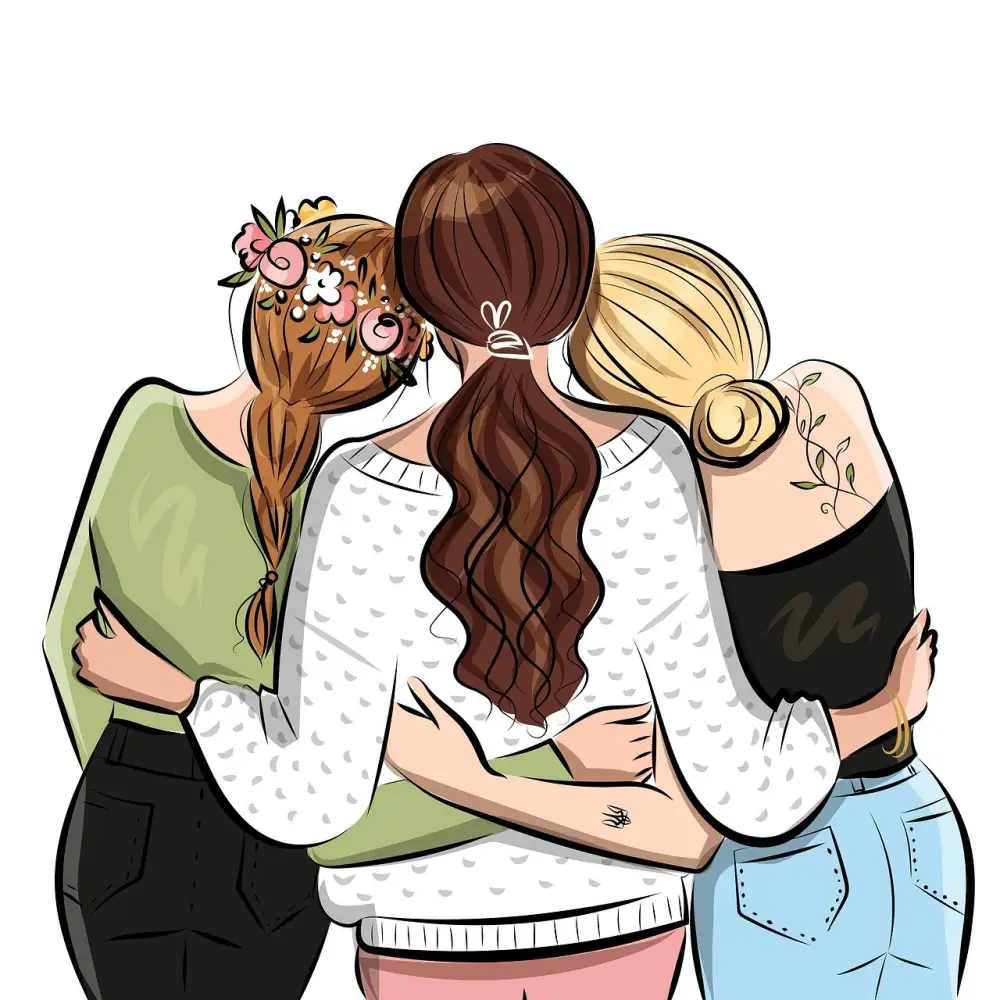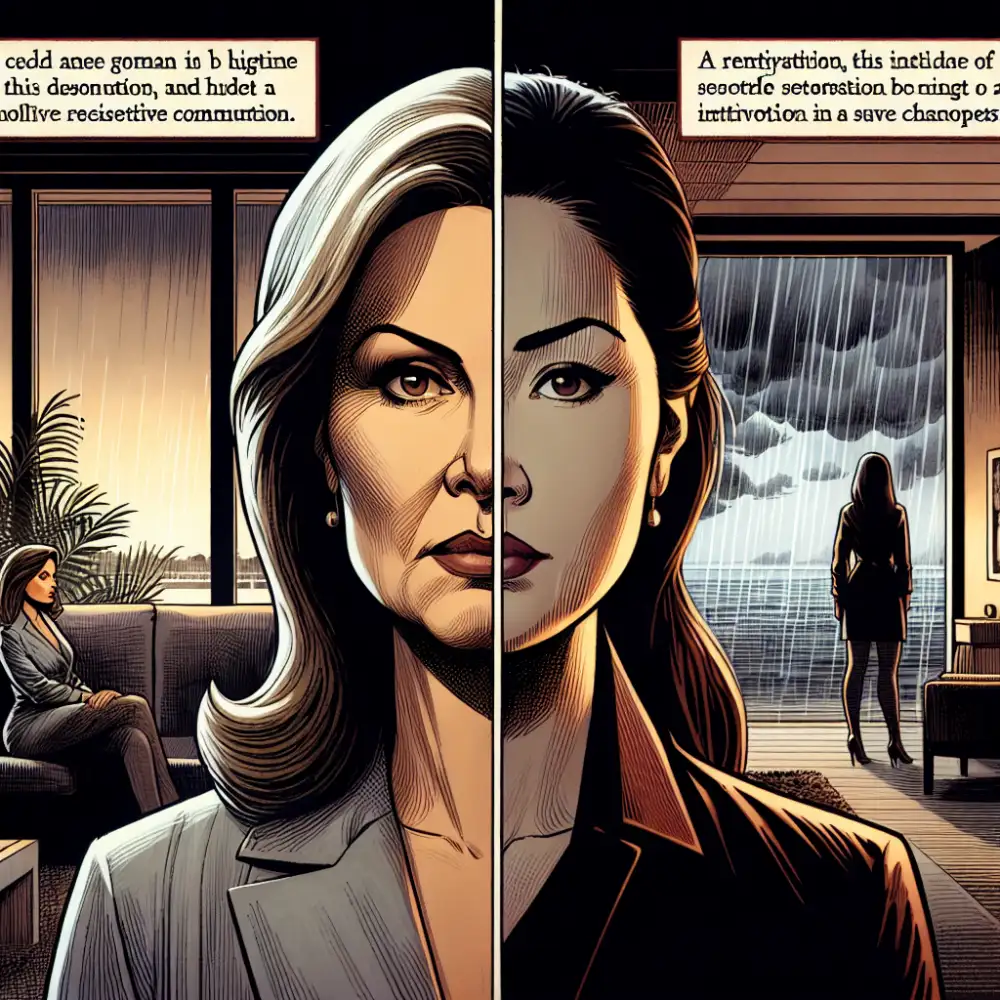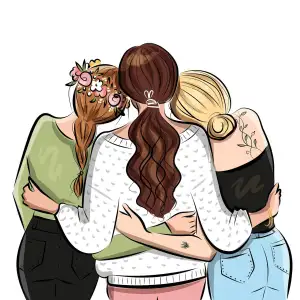The Truth About Homewreckers: Myth or Reality?

Societal perceptions
Societal perceptions of women who are perceived as causing the breakup of a relationship are often deeply rooted in misogyny and double standards. The term "homewrecker" itself carries inherently negative connotations, placing blame solely on the woman while minimizing or excusing the actions of the person who was already in a committed relationship. This perpetuates the harmful idea that women are responsible for the choices of their male partners and reinforces a narrative where women are pitted against each other for male attention.
These perceptions often fail to acknowledge the complexities of relationships and the various factors that can contribute to their breakdown. It's crucial to remember that relationships involve two (or more) individuals, each with their own agency and responsibility for their actions. Placing the blame solely on the "other woman" ignores any pre-existing issues within the relationship and absolves the involved partner of accountability. Additionally, these judgments can have real-world consequences, leading to slut-shaming, social ostracization, and reputational damage for the women involved. It's essential to move away from these harmful stereotypes and engage in more nuanced conversations about relationships, infidelity, and personal responsibility.
The other woman stereotype
The "other woman" stereotype paints a picture of a conniving, seductive figure who enters a relationship with the sole intention of destruction. She's often portrayed as a manipulator, using her feminine wiles to lure a committed partner away from their significant other. This stereotype thrives on assigning blame and often simplifies complex relationship dynamics. It ignores the agency and responsibility of all parties involved, particularly the person who chose to stray from their commitment.
The consequences of this stereotype can be deeply damaging. Women labeled as "homewreckers" often face social ostracism, reputational damage, and even harassment. This label ignores the possibility that these women may be unaware of the relationship status or may themselves be victims of manipulation. It's crucial to remember that relationships involve two (or more) consenting adults, and placing the blame solely on the "other woman" perpetuates harmful narratives and avoids addressing the root causes of relationship breakdowns.
Relationship complexities
The label "homewrecker" carries significant weight, often unfairly burdening women caught in the crossfire of relationship breakdowns. It's crucial to remember that relationships are complex, and assigning blame solely to one party, especially a woman uninvolved in the original commitment, is reductive and often inaccurate. While some individuals might actively pursue someone in a committed relationship, it's crucial to recognize that a relationship's end usually stems from pre-existing issues and choices made by those within the relationship.

Attributing blame solely to the "other woman" ignores the agency and accountability of the partner who chose to break their commitment. It's essential to approach these situations with empathy and understanding, recognizing the multifaceted nature of relationships and avoiding harmful stereotypes that perpetuate negative perceptions of women.
Personal responsibility
The concept of a "homewrecker" often places blame solely on the "other woman" while minimizing the agency and responsibility of the partner who chose to engage in infidelity. Relationships involve two (or more) individuals, each making independent choices. Placing the entirety of the blame on someone outside of the relationship ignores the complexities of human interaction and the choices made by those within the relationship.
It's crucial to remember that a person outside of a relationship cannot "cause" a breakup on their own. A relationship is a commitment between individuals, and ultimately, the decision to stray lies with the person already in the relationship. Focusing solely on the actions of someone outside the relationship disregards any pre-existing issues or the responsibility of the person who chose to break their commitment. While the "other woman" might face societal judgment, it's essential to remember that accountability for the breakdown of a relationship rests with those who chose to betray the trust within that relationship.
Blaming external factors
It's easy to point fingers and place blame on an outside force when a relationship falls apart. She's the one who came onto him, right? She must have manipulated and seduced him into leaving. While it's tempting to paint the "other woman" as a villain, the reality is far more nuanced. Relationships end for a multitude of reasons, and focusing solely on an external factor like another person oversimplifies a complex situation. It ignores any pre-existing issues within the relationship itself. Was there already trouble in paradise? Were needs not being met? These are tough questions, but essential to consider before placing all the blame on someone else. Remember, a relationship involves two people, and both individuals have a role to play in its success or failure. Placing the blame solely on the shoulders of another woman ignores the agency and responsibility of the partner who chose to stray. It's crucial to remember that infidelity is a choice, and while temptation might exist, it's ultimately up to the individual to stay true to their commitments.
Communication breakdown
Often, when a relationship ends, fingers point towards another woman – the "other woman." She's painted as a temptress, a manipulator who lured someone away from their committed relationship. But this narrative, often fueled by anger and hurt, simplifies a complex situation and ignores the crucial element: communication. Relationships don't crumble solely due to an outsider's influence. They often falter because of pre-existing cracks in the foundation, unaddressed issues, and a lack of open, honest communication between the partners.

While it's easier to place blame externally, it's crucial to recognize that a relationship involves two people, each responsible for their choices and actions. If one partner strays, it's essential to examine the dynamics within the relationship that might have contributed to that decision. Was there a lack of emotional intimacy? Were needs not being met? Was there a breakdown in communication? Placing sole blame on the "other woman" ignores the agency and accountability of the partner who chose to break the trust within their relationship.
Instead of perpetuating harmful stereotypes and narratives, let's encourage empathy and understanding. Breakdowns in communication can happen in any relationship. It's crucial to address issues head-on, communicate needs effectively, and cultivate a space of honesty and vulnerability with our partners.
Infidelity and its impact
The label "homewrecker" carries significant weight, often unfairly placed on women. While infidelity is a breach of trust, attributing the breakdown of a relationship solely to the "other woman" oversimplifies a complex issue. Relationships involve two individuals, each responsible for their choices and actions. Blaming a third party ignores pre-existing issues within the relationship and disregards the agency of the person who ultimately chose to cheat.
The emotional toll on women labeled as "homewreckers" can be severe. They may face public shaming, social isolation, and reputational damage, regardless of their knowledge of the relationship's status or the extent of their involvement. This societal tendency to vilify the "other woman" often serves as a distraction from addressing the root causes of infidelity within the relationship itself.
It's crucial to remember that infidelity is a symptom of a problem, not the problem itself. Placing the blame solely on one person, especially with loaded terms like "homewrecker," prevents individuals and couples from engaging in honest reflection and understanding the factors that contributed to the situation.
Moving on and healing
It's important to acknowledge the pain and hurt you've caused. Taking responsibility for your actions is crucial for your own emotional growth and for any chance of repairing relationships. This doesn't mean being consumed by guilt, but rather understanding the impact of your choices. Focus on yourself, your healing, and what you can learn from the experience. Seek therapy or support groups to process your emotions and develop healthier relationship patterns. Remember that forgiveness takes time, both from others and yourself. Be patient and focus on rebuilding your life with integrity and respect for yourself and others.

Seeking support and therapy
The emotional fallout from being labeled a homewrecker or being accused of destroying a relationship can be incredibly isolating and painful. It's crucial to remember that you deserve support and compassion, regardless of the complexities of the situation. Seeking therapy can provide a safe and non-judgmental space to process your emotions, unpack the experience, and develop coping mechanisms for dealing with the social stigma and potential guilt or shame.
A therapist can help you explore the reasons behind your involvement in the relationship, understand any patterns in your behavior, and address any underlying emotional needs that might have contributed to your choices. They can also provide tools for managing anxiety, navigating difficult conversations, and rebuilding your self-esteem. Remember, seeking therapy is a sign of strength and a commitment to your emotional well-being. It's a journey of self-discovery and healing, allowing you to move forward with greater understanding and resilience.
Building healthy relationships
It's crucial to remember that healthy relationships are built on a foundation of respect, trust, and open communication. Placing blame solely on one person for the breakdown of a relationship is rarely accurate or fair. Relationships are complex, and often, pre-existing issues contribute to their end.
Instead of perpetuating harmful stereotypes about "homewreckers," let's focus on empowering individuals to build healthy relationships. This includes setting boundaries, communicating needs effectively, and addressing conflicts constructively. It also means taking responsibility for our actions and choices within a relationship.
If you find yourself attracted to someone already in a relationship, it's essential to respect their commitment and create distance. Pursuing a romantic relationship with someone who is unavailable can lead to hurt feelings, drama, and damage to multiple parties involved. Remember, building healthy relationships starts with respecting ourselves and others.
Published: 15. 07. 2024
Category: Food



